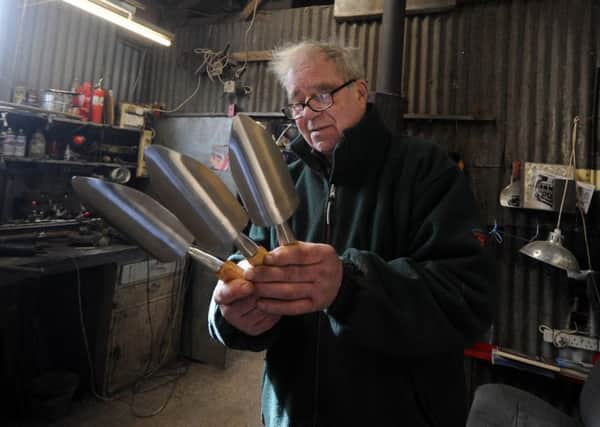Going organic boosts income on the North York Moors


Windy would probably have been blown away by the scale most milling is undertaken today, but there are smaller milling operations, minus the windmill, that exist throughout the UK and one is in the North York Moors, just out of Hutton le Hole.
Philip Trevelyan started Yorkshire Organic Millers from his farm at Hill Top House in the hamlet of Spaunton in 2004. One of his three farmer suppliers delivers grain to him by coming over the Moors from Whitby by tractor and trailer. It would be easy to see this an attempt at holding on to tradition but in reality it’s still probably the easiest, quickest and most cost effective way of transportation in the hills.
Advertisement
Hide AdAdvertisement
Hide Ad“I was always interested in farming without chemicals,” says Philip, who came to Spaunton in 1974. He moved north, to Leeds, having grown up next to a farm in East Sussex and enjoying a career in documentary filmmaking. He purchased what was initially a 53-acre farm that has now increased to an owned acreage of 95 acres with a further 30 rented and common rights on Spaunton Moor.
“My wife Nelly and I built the livestock operation on the farm with a small herd of 16 Hereford X suckler cows, two flocks of 300 breeding ewes on the moor and 115 ewes in-bye. We also grew spring wheat and spring barley. We became part of the early push for a return to real bread without additives. Prior to certification for organic grain we used to grow what was then known as conservation grade grain.”
Philip’s early crops went to the specialist organic flour mill Little Salkeld Watermill near Penrith.
“We became fully certified in 1996. During the time from then until starting our own mill I had a friend and colleague John Zarb who lives in Helmsley working with me. John had a terrific background in organic farming research and it was his idea to start the mill.”
Advertisement
Hide AdAdvertisement
Hide AdLike many before him Philip’s move into a new business activity on the farm was partly influenced by circumstances.
“We’d had a big pile of grain that hadn’t quite made the milling grade required by the company we were supplying. It hadn’t made the protein content they were looking for, but it was golden and lovely looking grain. There wasn’t anything wrong with it as a grain, just not right for their specification. We calculated that the amount we had in that pile would have been enough to feed several villages.
“Our decision was also made a little easier as there were grants available for building a new shed to house the mill and between John and myself we had some great contacts. We ended up buying a good deal of the milling equipment we needed second-hand from a contact in Hull.”
The three millstones used at Hill Top Farm are carved out of granite and have been made by French milling equipment specialists from Brittany. In order to achieve maximum efficiency and the quality of flour produced the millstones are redressed periodically.
Advertisement
Hide AdAdvertisement
Hide Ad“We buy the grain from three farmers at present, clean by extracting the dust, put it straight to our mills and then into our bags, and because it has not been through heavier industrial systems it retains its protein too.”
Philip believes the consumer return to organic produce is gaining momentum again after the sudden headlong rush of around a dozen years ago had slid away more recently.
“Consider for a moment that most of the bread from non-organic wheat will contain traces of weed killer and nitrogen thanks to the crop having been sprayed before harvest and that the combination of those chemicals is in some way appearing in your sandwiches and to me organic flour is a no-brainer.”
Philip has recently taken the mill back in hand as it had been run by another local man Joe Coughlan for a couple of years.
Advertisement
Hide AdAdvertisement
Hide Ad“The idea of taking it back is that my son Matthew has taken over the running of the farm and I’m keen to show him how the mill works.”
NOT JUST ABOUT GRAIN
Yorkshire Organic Millers supplies Botham’s bakery in Whitby, The Haxby Bakehouse near York, hotels and a school in Whitby.
Hill Top Farm currently grows 14 acres of spring wheat and has two breeding flocks of 150 Swaledale ewes and 130 Mule ewes.
Philip also manufactures specialist conservation-related tools known by the brand name Lazy Dog employing three local men. One is a tool for removing docks. He has a new product called the Manx Hoe and his trowels have won national awards.
His documentary films included several revolved around farming in the 60s and 70s.